Humour

There’s nothing immediately funny about online abuse. It’s annoying. It’s scary. It’s draining.
But what if by finding the funny in the unfunny, you could regain control of a dynamic that has turned abusive? What if giggling at the trolls ended up being one of the most effective ways to deal with online abuse, since it offers us the opportunity to humorously acknowledge our abusers for the sole purpose of shrugging them off?
By defusing a tough situation with a joke or an ironic emoji, you’re more than likely to come out of the interaction feeling like a rockstar. We’re talking about that sweet rush of endorphins you get from exchanging hilarious memes with your friends. We’re talking about the fact that laughter really is the best medicine.
Plus, by making it clear to harassers that what they say affects you so little it actually makes you laugh, you’re also more than likely to have belittled your abuser beyond recovery, which is always a delicious bonus.
A strong sense of humour may well be a major source of power on the Internet.
[Abusers] are cowards and bullies. The only way of dealing with them is to stare them down. Use humour to deal with them. One needs to hit them where it hurts, their ego.
-- Anshika, interviewed for Don’t Let It Stand
Oh yes, and you know the thing about fragile male egos? They don’t always do so well in the face of laughter.
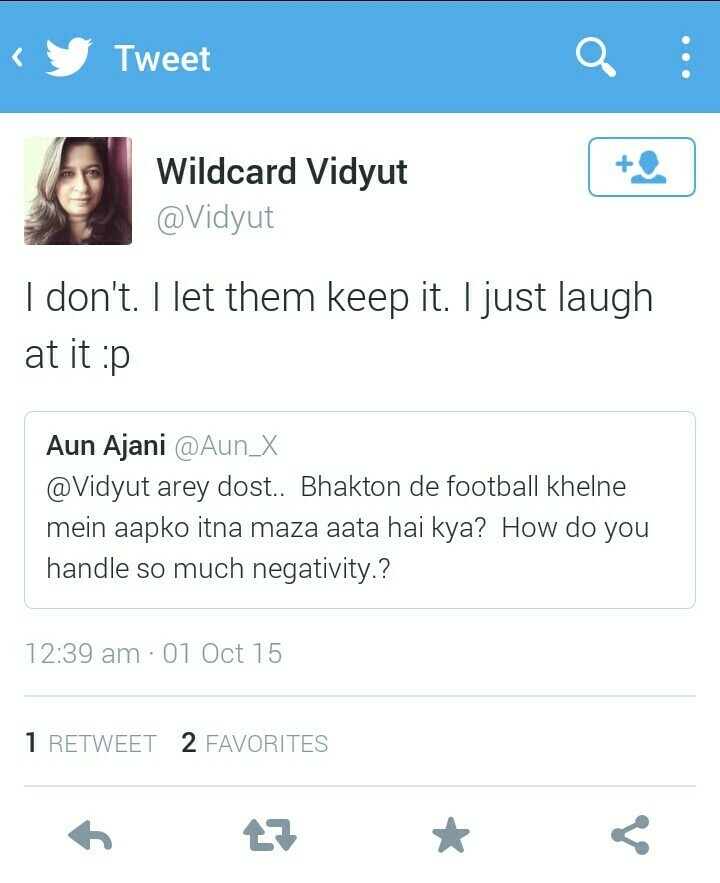
So laugh at them.
Presenting a by-no-means-exhaustive collection of witty, sharp, and hilarious responses to abuse on Twitter:
Featuring stand-up comedian, Aditi Mittal.
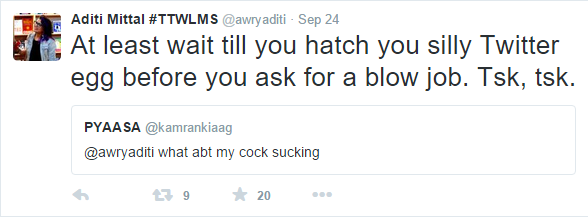
Here’s Roxane Gay’s cool retort to one of the many comic-book trolls that descended to insult her Marvel spin-off series. (Bonus: her curt shutdown also led to the troll shame-deleting his tweet.)
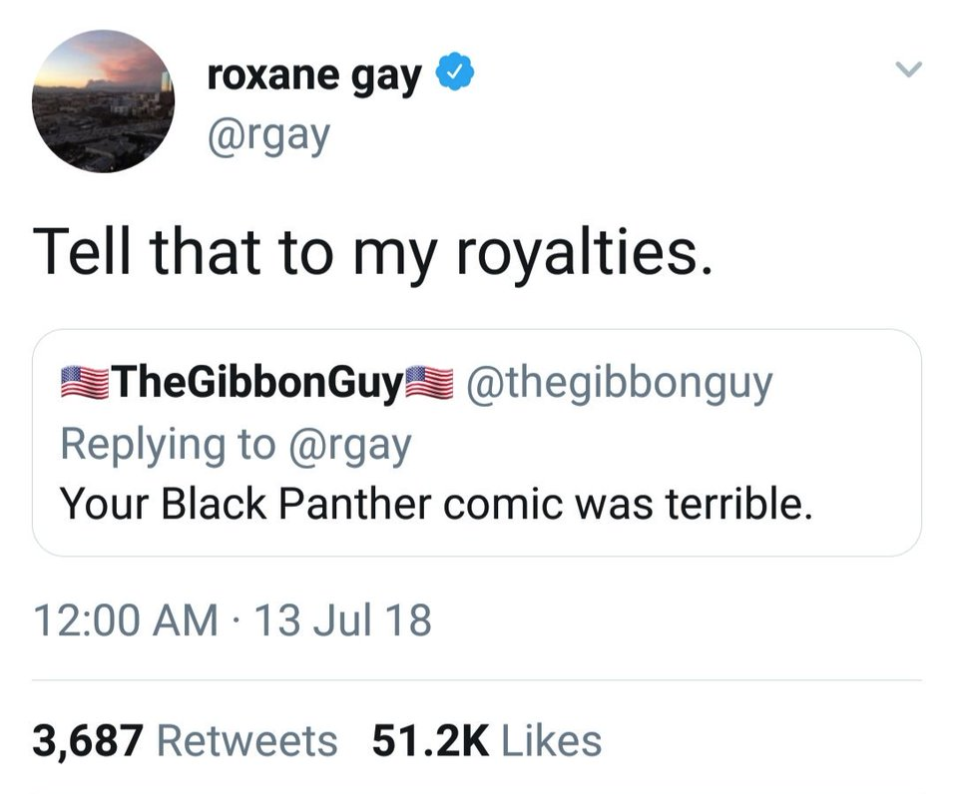
And it’s tough to pick out just a single Christine Teigen tweet to sum up this clapback queen, but we do have a soft spot for her reply to a truly weird comment about ‘pleasing’ her husband.
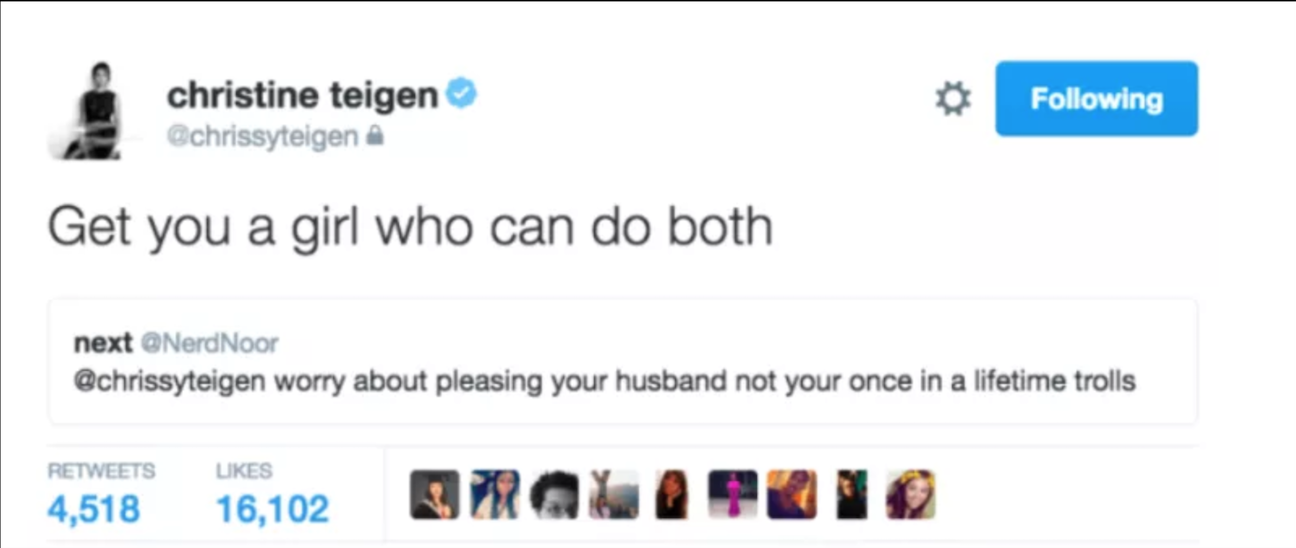
Does something smell like it’s on fire? Because Ariana Grande just burned this dude who left an ‘observation’ on one of her Instagram pictures with her sarcasm.
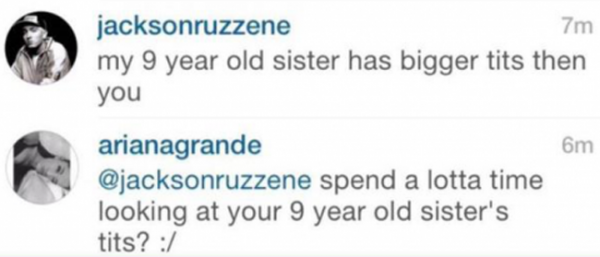
Almost all of former Buzzfeed India editor Rega Jha’s tweets to and about abusers could be archived as excellent, but we picked just two.
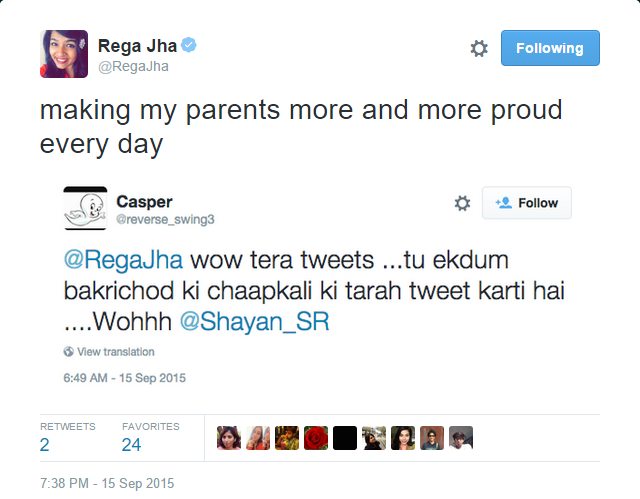

Rega’s timeline also led us to this fantastic comment by writer Joanna Borns.
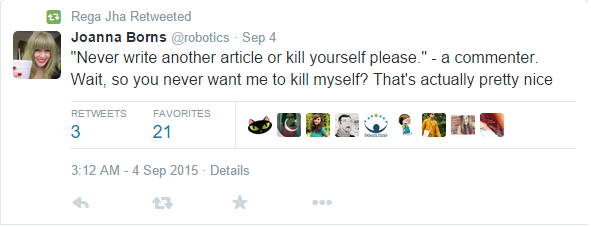
Here’s Naina expressing her sympathy for some desis who are missing home.
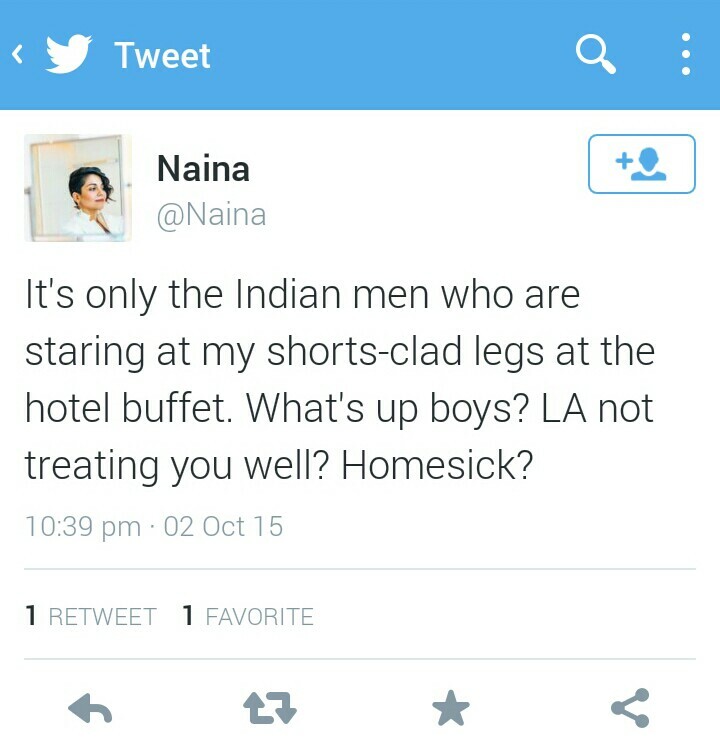
Rituparna realised how advice from a menacing troll actually brought her closer to Edward Snowden.
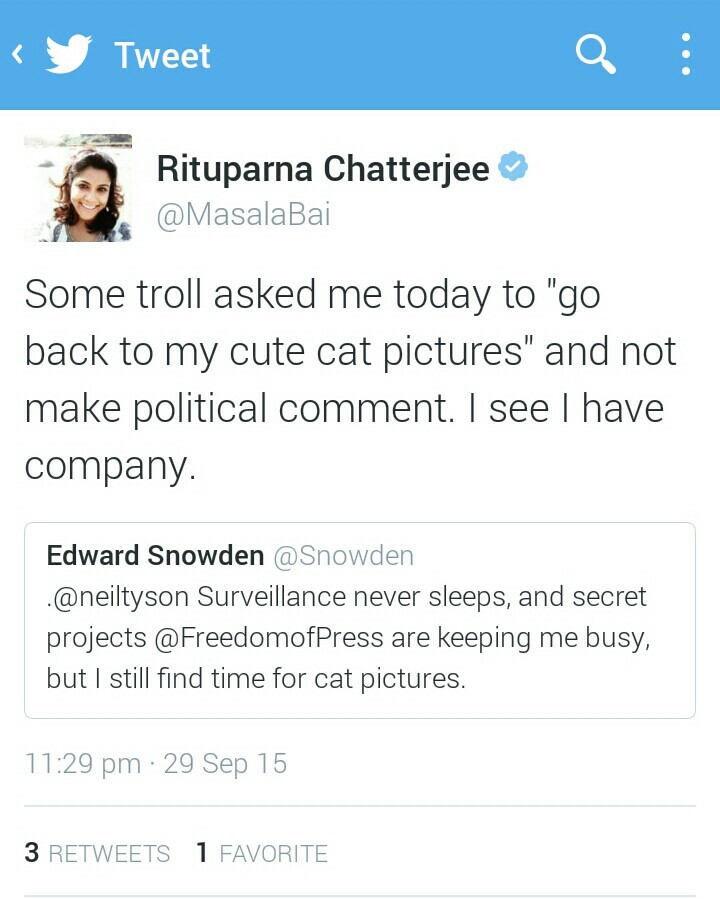
Maggie just could not contain her excitement when she found out this man had… wait for it… an opinion!
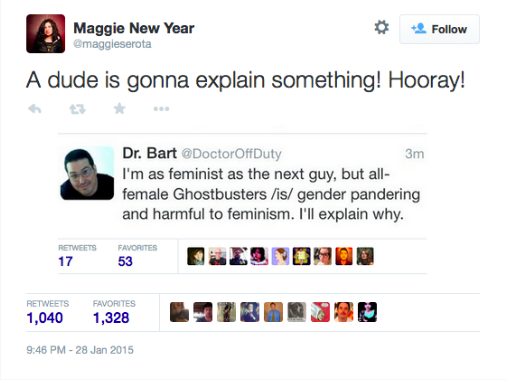
Jessica Valenti is a fan of wearing cool sweatshirts with even cooler sayings.

Takeaway
Humour is a powerful way for women to acknowledge abuse and dismiss an abuser in the same breath.
Ah, memes. Even if you haven’t created one of your own, you’ve definitely seen them being used online. All. The. Time.
Memes (rhymes with ‘dreams’) are usually stills, gifs, or text from movies, shows, and other bits and pieces of popular culture that evoke giggles and spread like wildfire across the interwebs.
When words don’t do enough justice (or rather, have difficulty being understood, *ahem*), memes often come to the rescue. Because sometimes there is not much difference between the fictional world of Mad Max and the not-so-fictional world of the Internet.
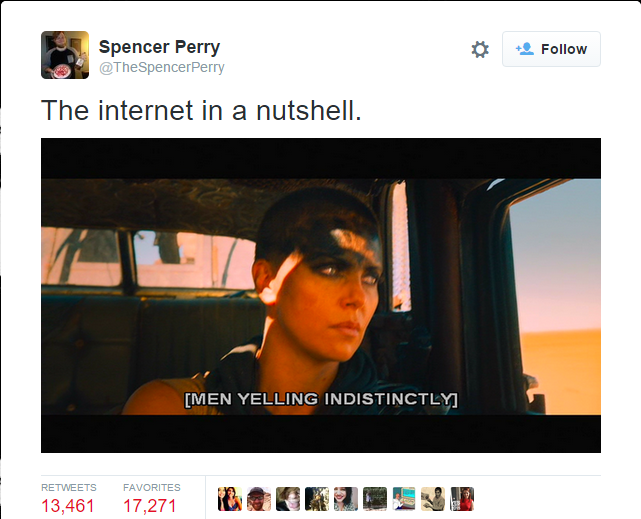
Feel free to use any of the following for appropriate (or inappropriate) situations.
For the ever-so-ubiquitous ‘mansplaining’.
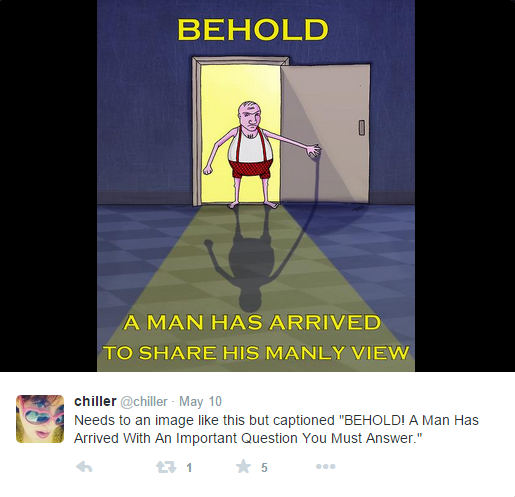
Or, if you prefer, you could use Aishwarya Rai’s version of ‘talk to the hand’.
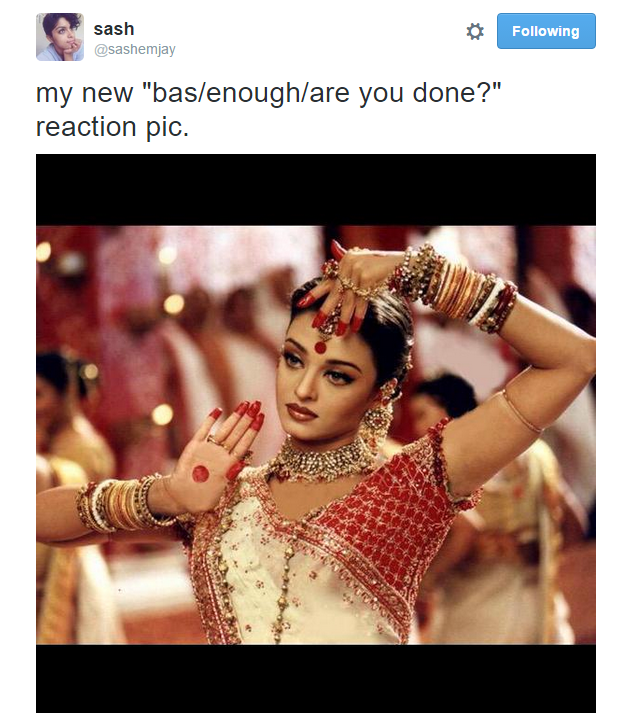
If this were a real product, we would buy a box full of them.

For when men get ragey and sad because you no love Dawkins. Or because you have a voice. Or an opinion. Essentially, your existence makes them weep.

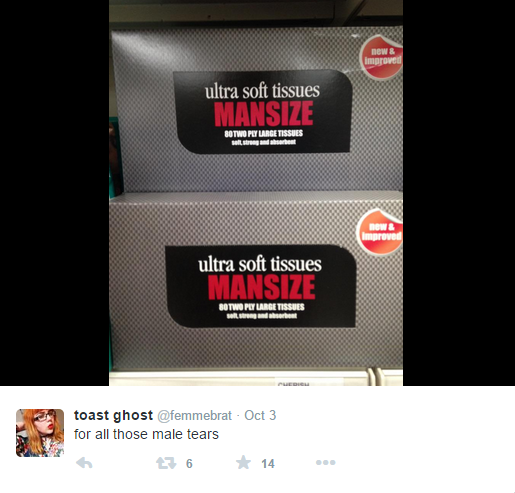
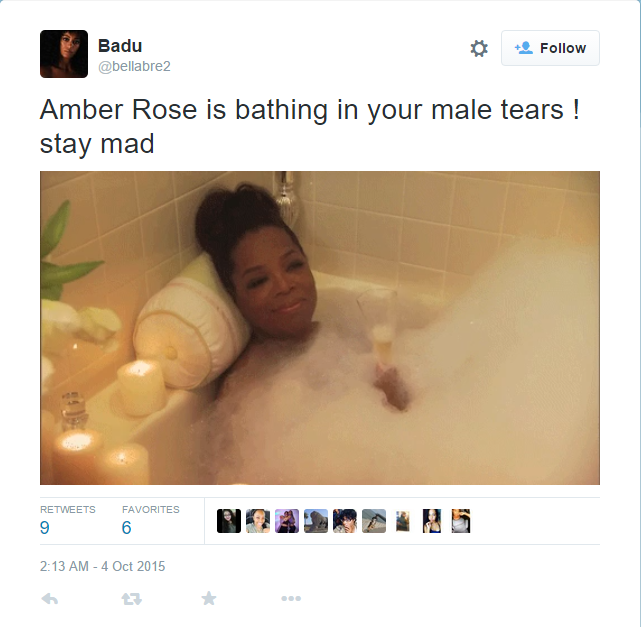

Celebrities are no strangers to memes. Someone made the mistake of calling Bollywood superstar Sonakshi Sinha ‘damn ugly’. She replied in the only graceful way she could.

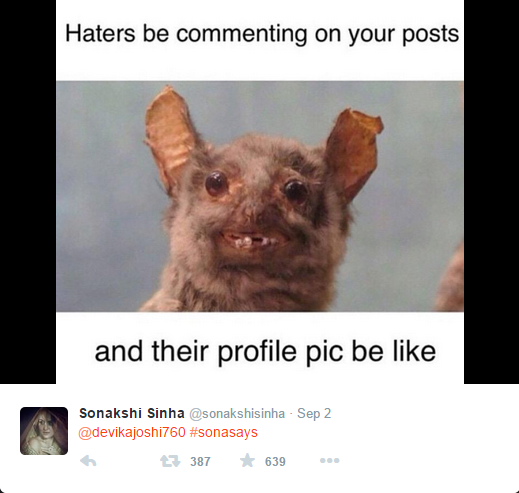
And finally, if it all gets too much, throw a Ryan Gosling meme in their face.
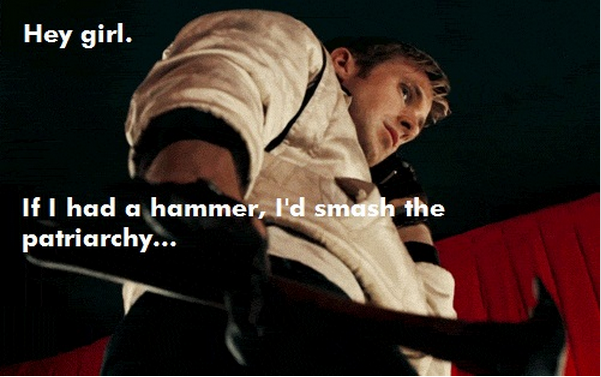
A study by two PhD students from the University of Saskatchewan showed that Gosling memes made men more ready to embrace feminist ideas.
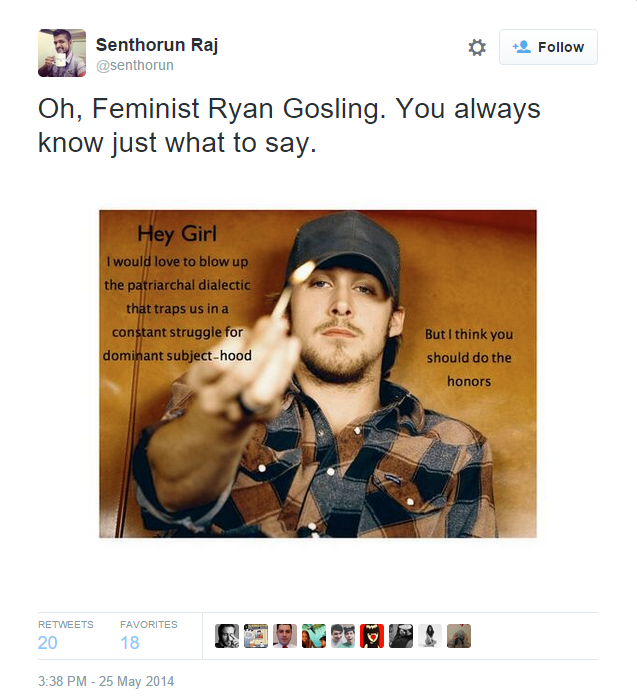
After all, who could ever turn down Ryan Gosling?
And if you’re looking for something a little closer to home, you can always use these as an inspiration to start your very own Feminist Rajnikanth. We personally can’t wait for that trend to kick in, so we’ve made one to get the ball rolling.
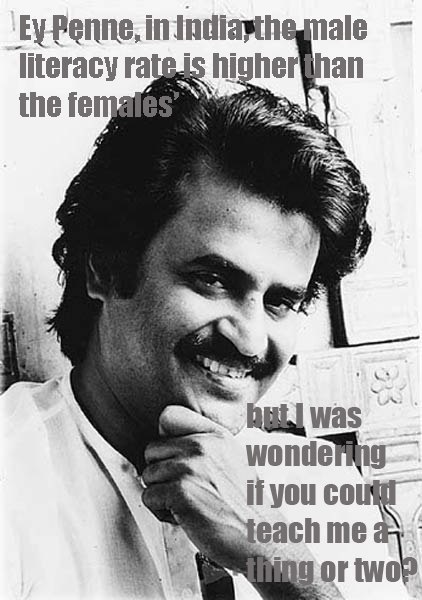
Takeaway
Since you might not be feeling particularly funny in the face of abuse, there are tons of fab memes you can use instead of coming up with your own jokes.
In no mood to come up with witticism yourself? Outsource the work to Zero Trollerance – a ‘humorous feminist-toned re-education programme for sexist trolls on Twitter’ launched by the Peng! Collective in March 2015, and very much worth checking out.
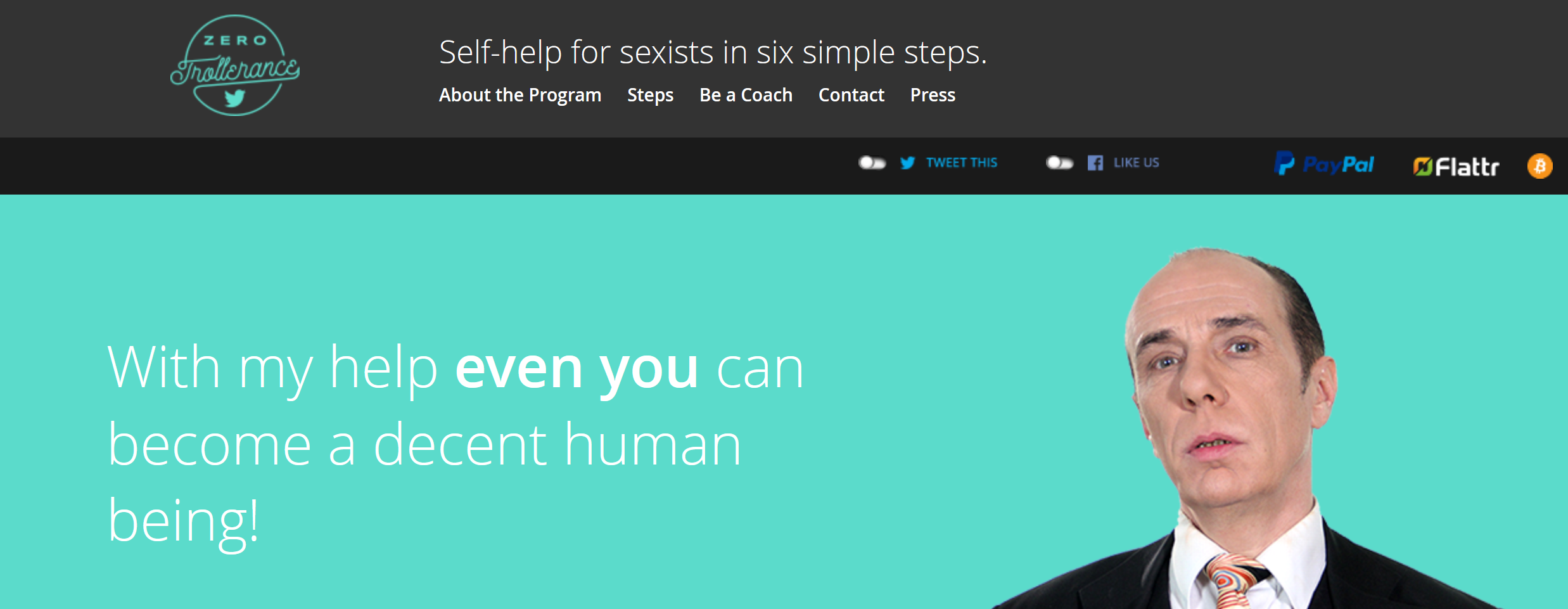
Zero Trollerance is made up of 6 mock self-help videos designed for abusers on Twitter.
It goes from ‘Step 1: Zero Denial’, in which bald-headed guru Adler King asks: ‘are you struggling to engage with anyone who doesn’t identify as a heterosexual man?’
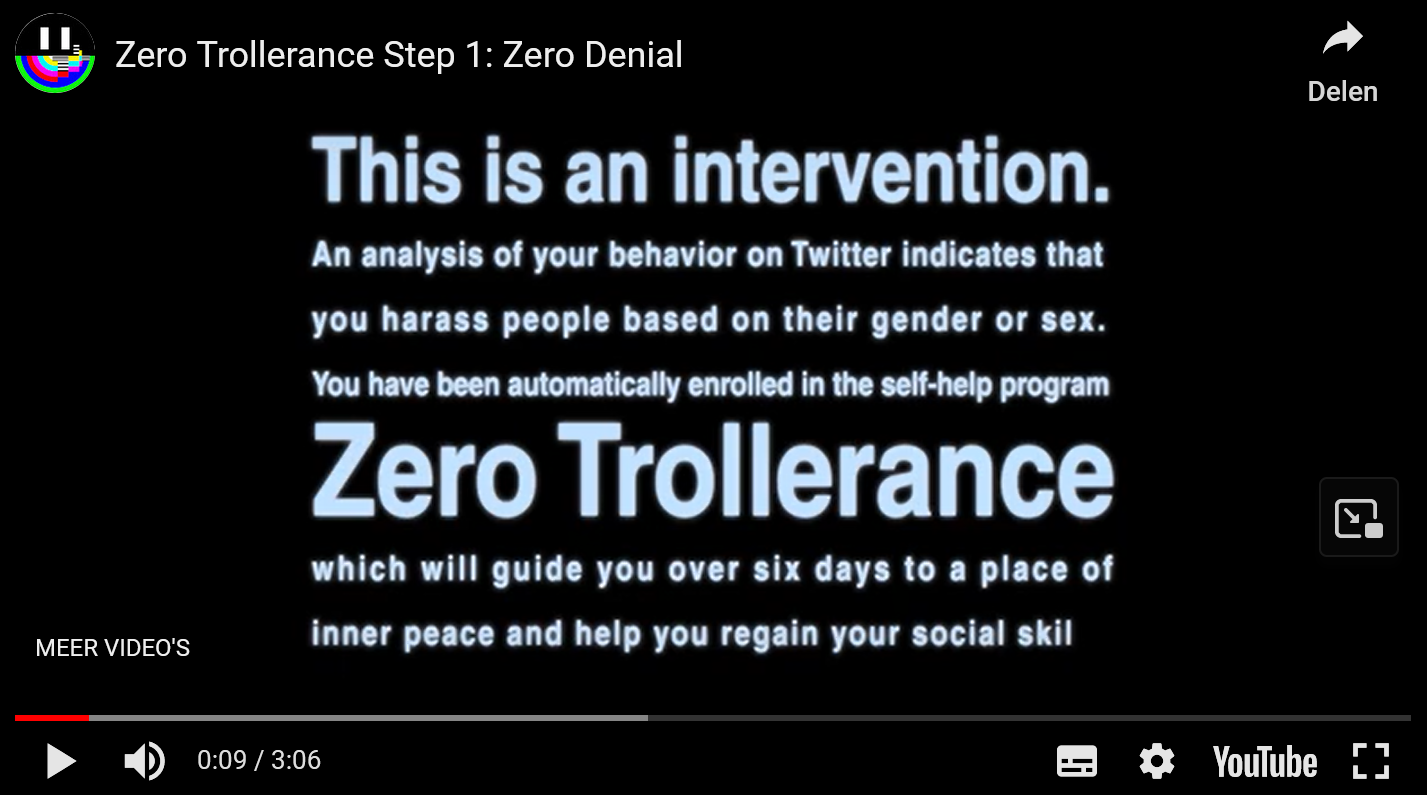
onto ‘Step 4: Zero Fear’ (‘challenge your perceptions of gender and privilege and face your fears’)

and up to the final ‘Step 6: Zero Troll’, which briefly features a ‘reformed troll’ wearing an ethernet cable around his wrist (in a mock-repentant gesture to ‘remind [himself] of his past on the Internet’).

The Zero Trollerance website states, ‘For trolls, this [website] is the first step towards a new life’. And the proof is in the pudding, a.k.a these mock testimonies from reformed trolls.
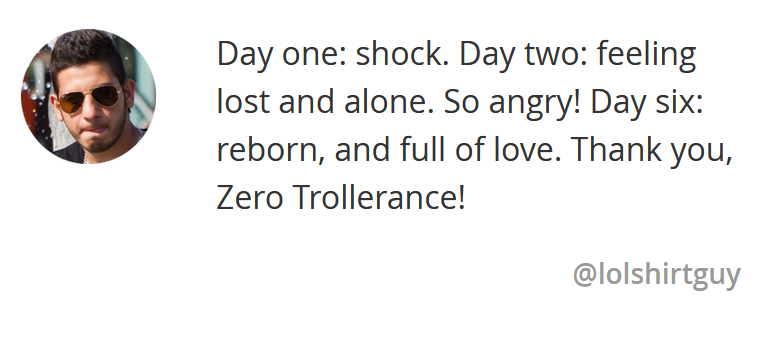
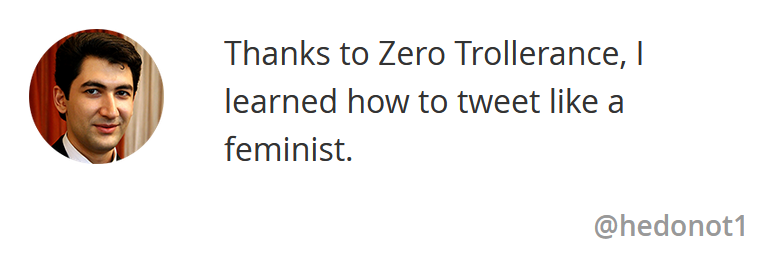
(For an example of Zero Trollerance taking on actual abusers, check out this strategy)
Takeaway
Although the extent to which they deflect or discourage actual abuse may not be clear, initiatives like Zero Trollerance are funny, accessible ways to comment on sexist abuse online.
It is a truth universally acknowledged that the interwebs are full of, uh, colourful men. But, they’re also filled with equally colourful responses from women. Sometimes, quite literally.
Instagram’s @awardsforgoodboys is a burst of colour, irony, and gender politics that everyone needs on their timeline. The artist behind the account, Shelby Lorman, draws social media interactions, text messages, and – most famously – hilarious awards dedicated to exposing how low the standard of decency is for men on the Internet and beyond.
Spoiler alert: the bar is so, so low. Come on, guys.
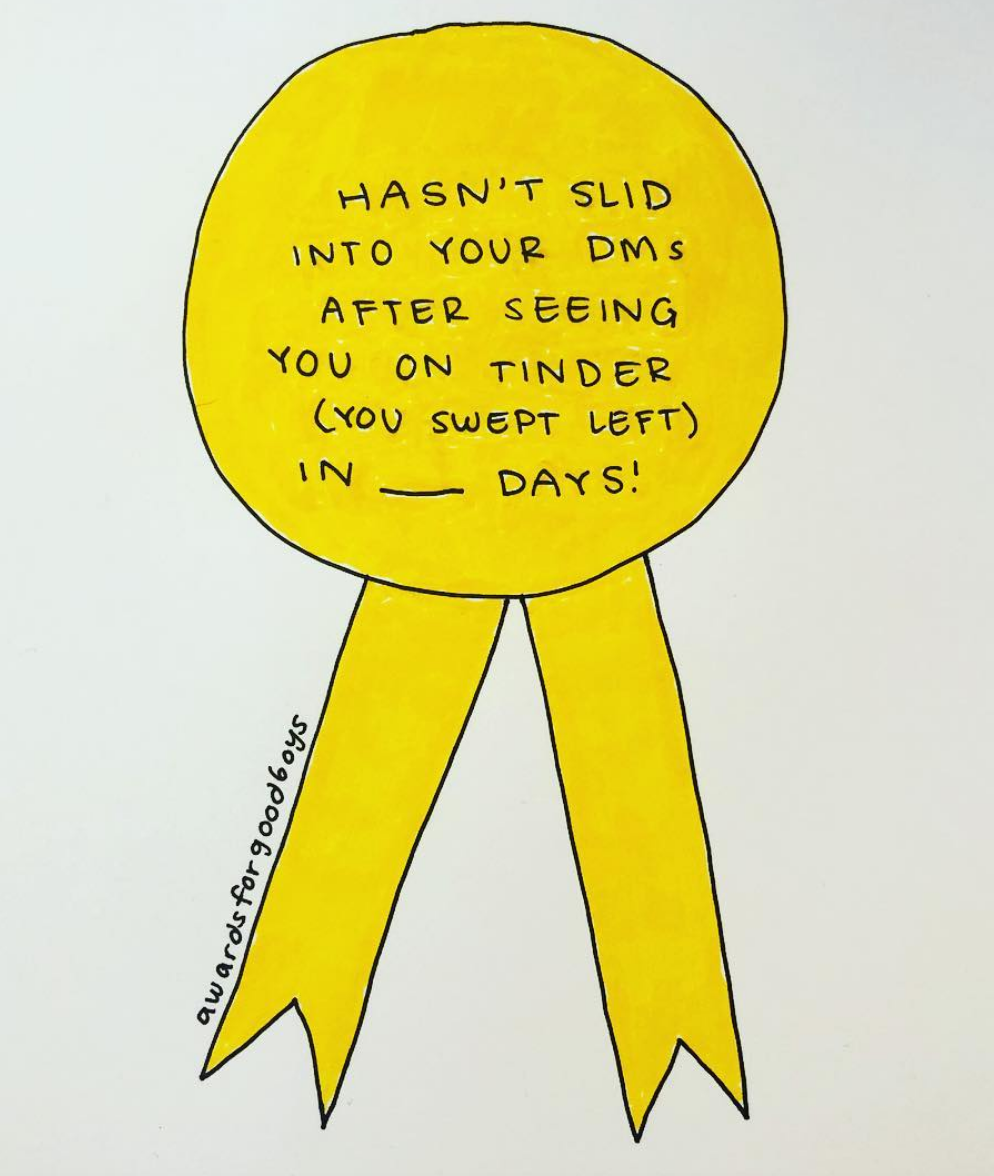
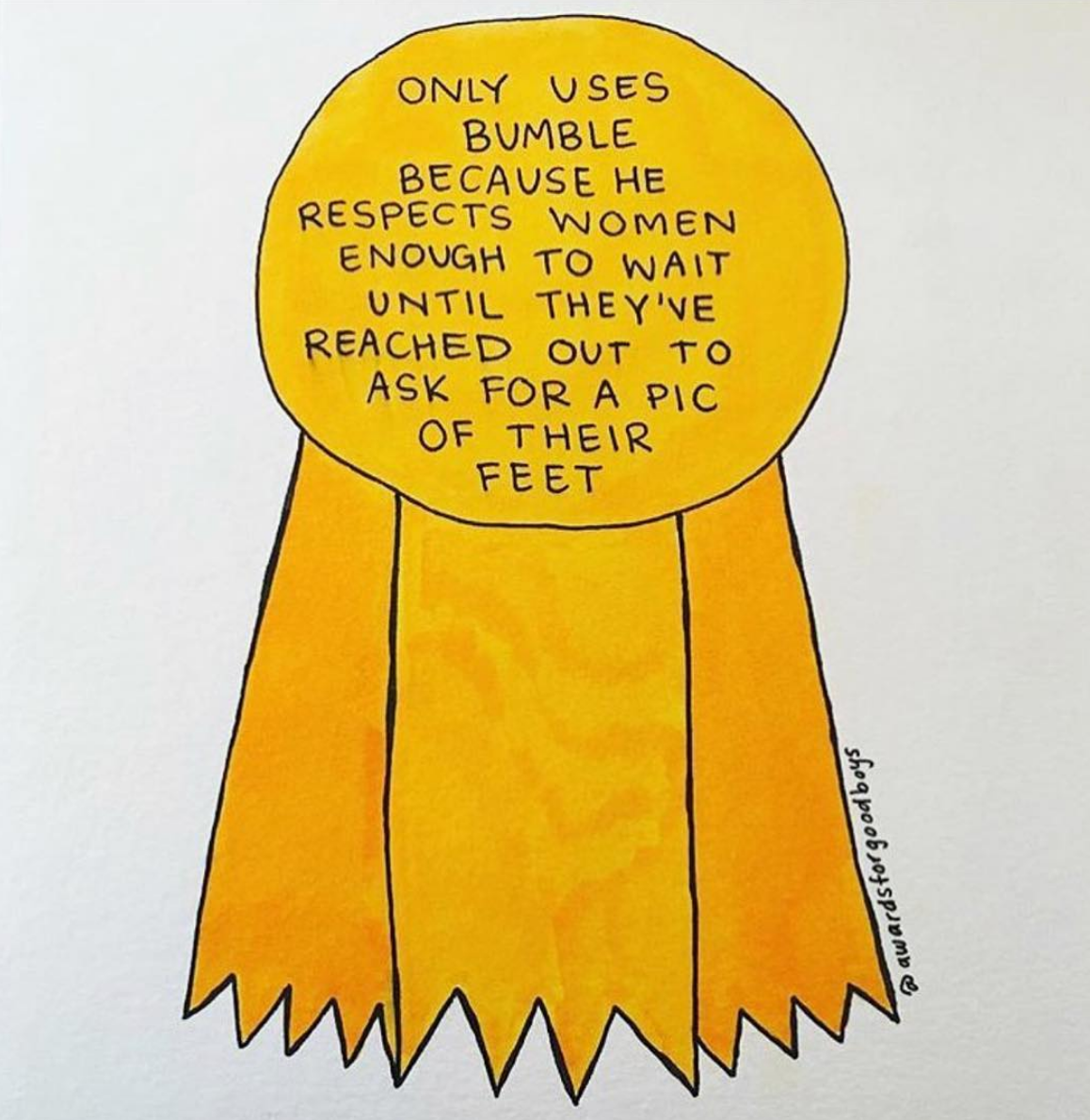
Shelby also has zero patience for seemingly ‘feminist’ men – those mansplain-y bros usually soaked in some good ol’ Eau de Hypocrisy.
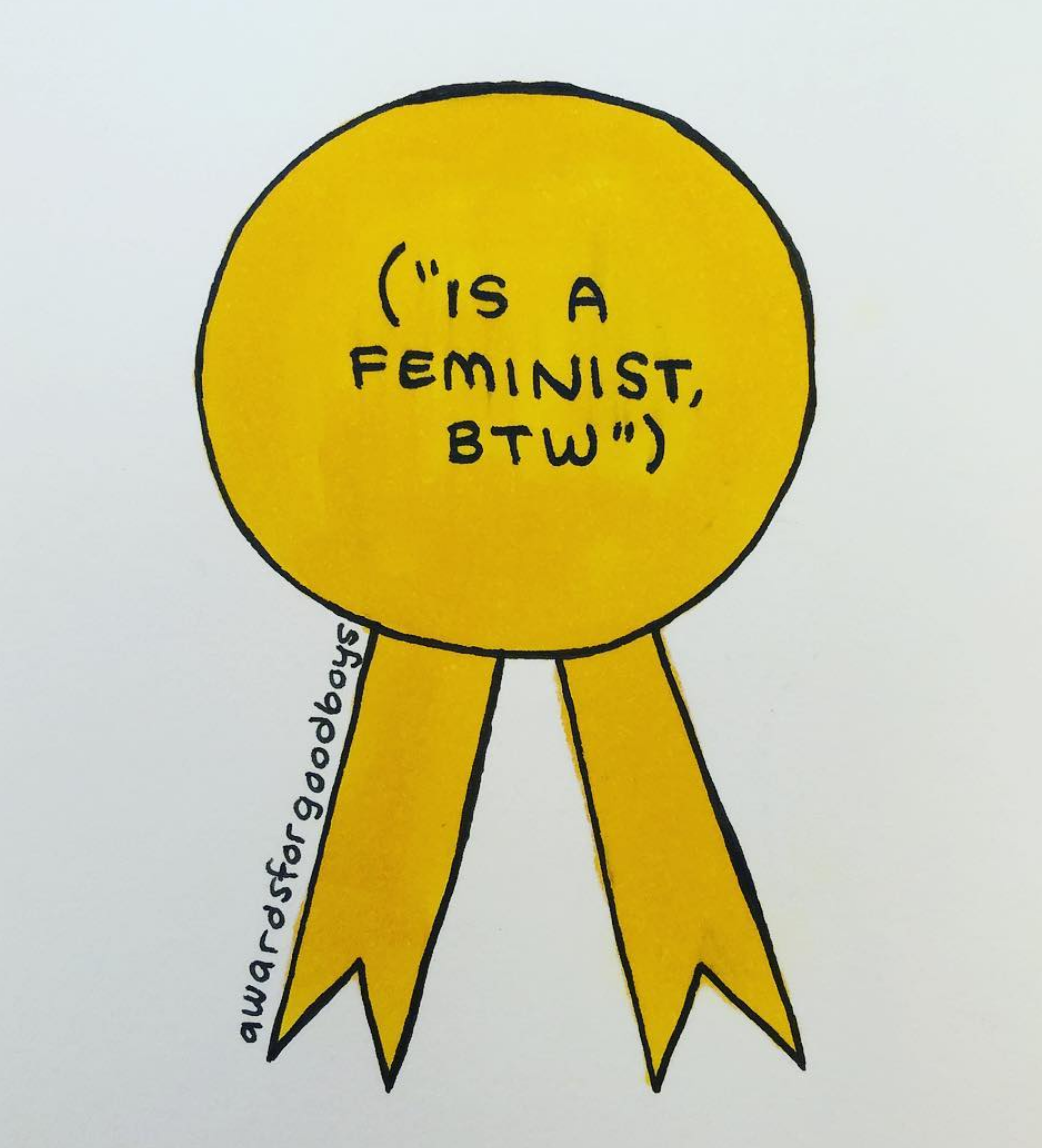
The brilliant content on @awardsforgoodboys is now being released as a book, titled Awards For Good Boys: Tales of Dating, Double Standards, and Doom, and coming soon to a bookstore near you in 2019.
Of course, the world of feminist media would be incomplete without some anthemic tunes to soundtrack our struggles. And the People’s Art and Literary Association (PALA) from Tamil Nadu, India know this better than most.

God’s own country – Ladies, no entry!
PALA’s satirical track responds to the intense level of gendered abuse that followed the Supreme Court’s decision to allow all women into Kerala’s Sabarimala temple. The Court’s judgment had become the focus of a national ‘debate’ – mainly conducted on Facebook, Twitter, and Whatsapp – that turned very toxic, very quickly.
But through this sharp and super quotable video, the women of PALA have taken the online virality of the Sabarimala debate into their own hands. The video’s lyrics and images expose the abusive double standards that have kept women in the margins of religious freedoms for far too long.
And, well. A little choreographed dancing never hurt anyone.
Hilarious feminist art? Sign us up!
Takeaway
There’s nothing actually funny about creepy or disrespectful men, but @awardsforgoodboys and the fine folks at PALA sure did a good job of making us laugh and rejoice right in their faces.